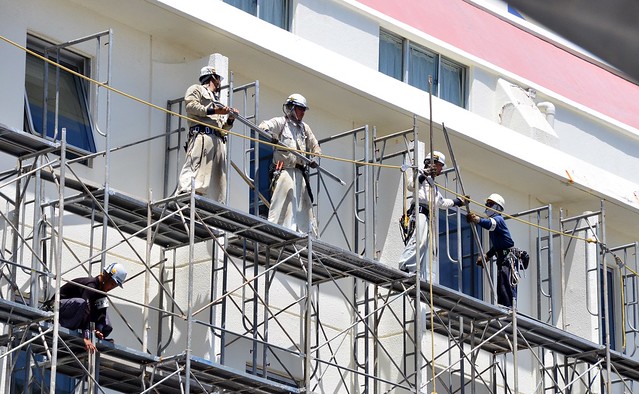What Does It Mean to Be a Licensed, Bonded and Insured Contractor?

“Licensed,” “bonded” and “insured” are three keywords that open many doors in the construction industry. If you are about to get licensed as a contractor, you might be asking yourself: what does it mean to be bonded and insured? We’ve unpacked these three terms (or even, mantras) to make your entrance into the field easier.
What all three essentially mean is that you, as a contractor, are safe to work with. It implies that you have obtained your state licensing after fulfilling all relevant requirements, including getting a surety bond and insurance. This is a powerful sign for both customers and partners that you are trustworthy and capable of keeping the promises you make in any contractual agreements.
Licensed
The most basic of the three keywords is licensed. Without a proper license from a state authority, contractors cannot conduct their business legally. That’s why a contractor’s license is the starting point for anyone working in the industry. Obtaining a license can be a daunting task. Every state has different requirements for contractor licensing.
Often, you need to register not only with the state but also with other local authorities, such as cities, counties, and municipalities. Sometimes whether or not you’re required to have a license, just depends on the cost of the work performed.
The specific conditions depend on the location of your business, but there are some main similarities. The most common requirements for getting licensed include: passing competency tests in your field, providing relevant documents, paying the licensing fees, and obtaining appropriate insurance and surety bond.

Want to know how to get a dealer license in your state? Select your state below to see our detailed guides!

Contractor Licensing Requirements By State
Bonded
What is a bonded contractor? “Bonded” is yet another keyword that rings a familiar and soothing bell in customers’ ears. It is an additional sign of a contractor’s trustworthiness. Contractors are usually required to get a contractor’s license bond when they apply for their contractor’s license with the state authorities. This means that a large part of licensed contractors is actually also bonded contractors, to begin with.
The surety bond, in this case, guarantees that contractors will follow state regulations. It is not protection for the contractor. Instead, it is a safety net for customers. They can rest assured that they will be reimbursed if the contractor fails to complete the job or has to repair defects. A claim can be made against the bond in case of non-completion of the contractual work.
Besides obtaining a contractor’s license bond, in some cases, contractors are required to get additional bonds. They relate to specific projects and are called contract bonds. The main ones are bid bonds, performance bonds, and payment bonds.
Insured

What is the difference between bonded and insured? A bonded contractor is one with whom it’s safe to do business. An insured contractor, on the other hand, means that the contractor can feel safe conducting own their business, too. Proper insurance is crucial for construction work. It guarantees the proper functioning of the business and the safety and compensation of workers in case of accidents.
It usually falls into two categories. The first one is general liability, such as property damage and injuries caused by the contractor’s work. The second relates to workers’ compensation, which guarantees payment to workers in case of injuries. An additional third category is automobile insurance for contractor’s vehicles.
Contractors can prove their insurance with an up-to-date Certificate of Insurance with the appropriate coverage.
Ready to rock the contractor’s world? Start with getting licensed, bonded, and insured.



